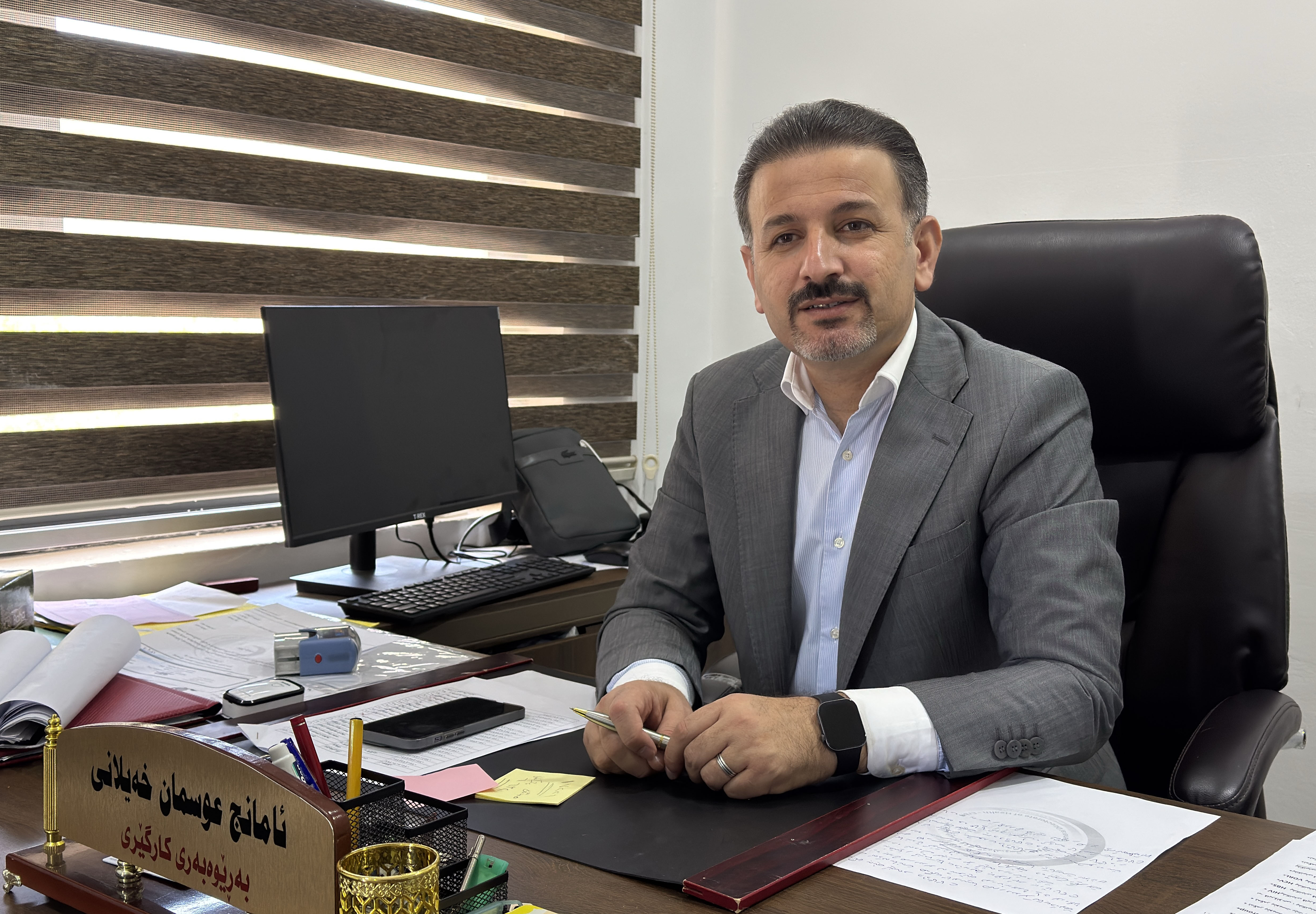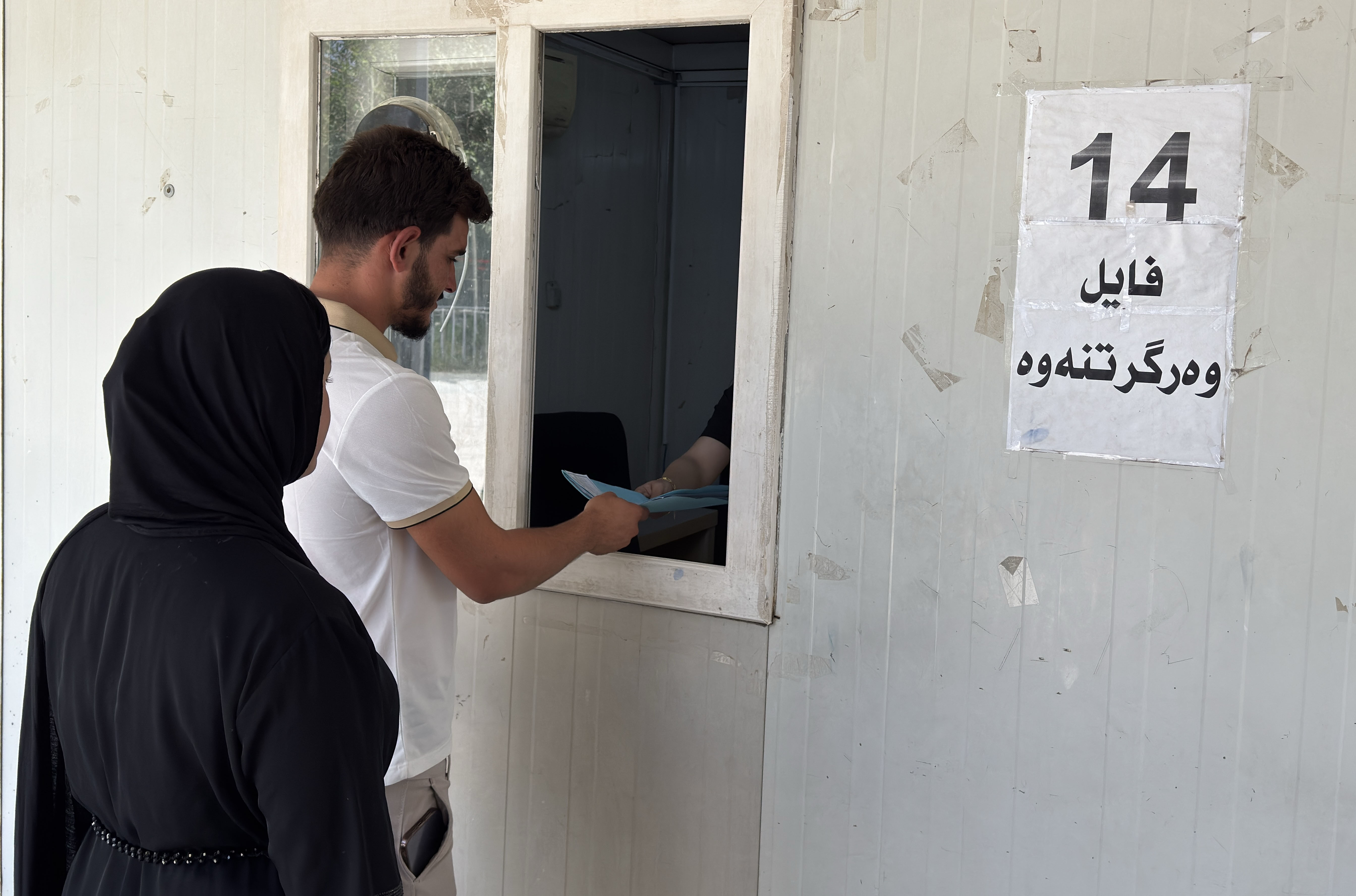Dozens of premarital tests are carried out at the Mamun Dabagh Center as a requirement for engagement in court, aiming to prevent unhealthy reproduction and promote a healthy society.
Last year, the center in Erbil Northern province, capital of the Iraqi Kurdistan Region, conducted 17,226 premarital tests, and 6,632 tests in the last five months.
Amanj Osman, the managing director of the center, explained the importance of these tests and the center's role in providing counseling to couples planning to get married.
KirkukNow: Mamun Dabagh was previously solely a health center. How have pre-marriage services changed your center?
Amanj Osman: Over 20 years ago, Maimun Dabagh was established as a health center, primarily conducting premarital tests. Now, it has evolved to offer a variety of tests, including blood type,
genetic diseases, HIV, hepatitis B and C, sperm tests for men, and ovarian tests for women. The goal is to assess their ability to have children. Even individuals under 18, especially girls, undergo ultrasounds by specialists, and a permanent medical committee provides a report to determine their suitability for marriage.
KirkukNow: What is the significance of these tests?
Amanj Osman: The medical committees at our center provide scientific and medical reports to determine if a marriage should proceed. If we object, judges will not approve the marriage.
KirkukNow: Have there been instances where marriages were prohibited based on these tests?
Amanj Osman: Yes, there have been cases where judges have taken our reports into serious consideration.
KirkukNow: Is one of the primary goals of these tests to reduce the prevalence of thalassemia?
Amanj Osman: Yes, we do not approve marriages where both individuals have thalassemia. There have been cases where both parties had thalassemia, and we advised against the marriage due to the risk of thalassemia in their offspring. Despite this, some couples proceed with marriage against our recommendation.
Recently, the Council of Ministers issued a decision to prevent marriages between individuals with thalassemia, forming a committee to address this issue.
KirkukNow: Besides thalassemia, do these tests aim to prevent other communicable diseases?
Amanj Osman: Our goal is to prevent unhealthy offspring that could contribute to the spread of communicable diseases in society.

Erbil, June 2025: Amanj Osman, the director the Mamun Dabagh Health Center. Farman Sadiq
KirkukNow: Have there been cases of HIV detected in these tests?
Amanj Osman: Yes, there was one case, but it has not been confirmed yet.
KirkukNow: Are there challenges when blood types of the couple are incompatible?
Amanj Osman: Incompatibility in blood types does not necessarily hinder the marriage process.
KirkukNow: What is the most common obstacle to marriage based on these tests?
Amanj Osman: Thalassemia remains a significant obstacle.
KirkukNow: What are the statistics regarding these tests?
Amanj Osman: In 2024, over 17,226 tests were conducted, a requirement for court-approved marriages. In the past five months, 6,632 tests have been carried out for couples.
KirkukNow: How about marriages conducted outside of court by religious figures?
Amanj Osman: Some clerics also require premarital examination reports before conducting marriages. We encourage all religious figures to prioritize the health of society by adhering to this practice.
KirkukNow: Do you collaborate with the Ministry of Endowments on this matter?
Amanj Osman: Unfortunately, we do not have such collaboration.





